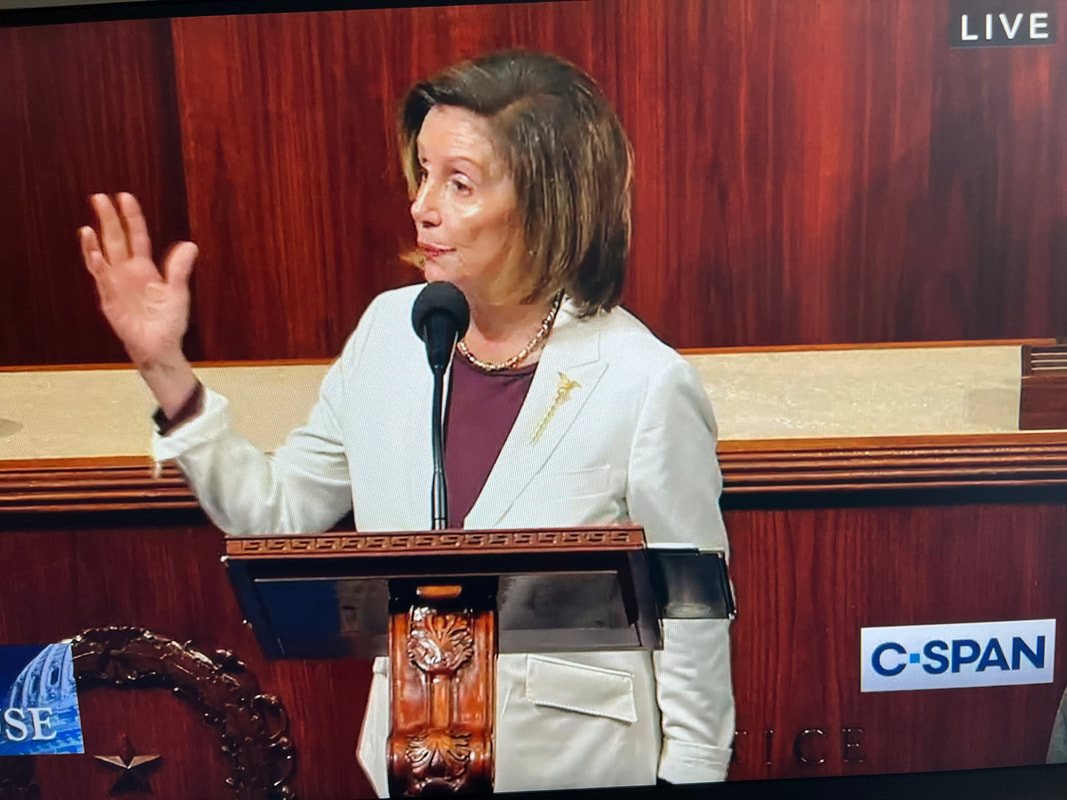|
By Ray Smock I was the House Historian in 1987 when Nancy Pelosi first entered the House of Representatives. I witnessed her rise to leadership. She said in her speech today that she went from "homemaker to House Speaker." This is true but it does not tell the full story of her long involvement in American politics, which was a family calling with her father serving in numerous political offices including Congress and later as Mayor of Baltimore. She was no ordinary freshman member in 1987. She hit the ground running. Nobody worked harder in the House than did Nancy Pelosi. I have studied the speakership and leadership in the House and I had the honor of working for three Speakers: Thomas P. "Tip" O' Neill, Jr. of Massachusetts, Jim Wright of Texas, and Tom Foley of Washington State. Nancy Pelosi is the first woman to hold this job and she clearly ranks as one of the best and most effective speakers in American history. Past speakers from both parties have sought to represent their party and also the nation. Some have been negative forces holding back the future and clinging to the past. This negative role was sometimes what the country seemed to want, as was the case at the turn of the 20th Century, when powerful speaker Joe Cannon of Illinois held up progressive legislation for years saying the country was doing fine and didn't need any new legislation.
Wielding power alone does not make a leader great. Power does mark and shape the institution and national affairs. Greatness in a speaker, I suggest, comes from a positive role, not a negative one. Greatness stems from a vision of a better future and the effort to improve the lives of the people. In this context Nancy Pelosi qualifies easily as a great speaker. Today she cited the Preamble to the Constitution, still the best single definition of what government is for and should do. Government should establish justice, insure domestic tranquility, provide for the common defense, promote the general welfare, and secure the blessings of liberty to ourselves and our posterity. And when Speaker Pelosi got to the word "posterity" she clarified it. It is our nation's children. It is future generations. Children born today, she said, will live into the next century. What kind of nation and what kind of world do we want to leave to the children? She will stay in Congress and represent her San Francisco district. I am sure she will continue to be force in the affairs of her party and the nation. But today she passed the torch of leadership to a new generation. It is so in her character of looking forward.
0 Comments
|
Welcome to the Byrd Center Blog! We share content here including research from our archival collections, articles from our director, and information on upcoming events.
Categories
All
Archives
July 2023
|
Our Mission: |
The Byrd Center advances representative democracy by promoting a better understanding of the United States Congress and the Constitution through programs and research that engage citizens.
|
Copyright © Robert C. Byrd Center for Congressional History and Education
|


 RSS Feed
RSS Feed
